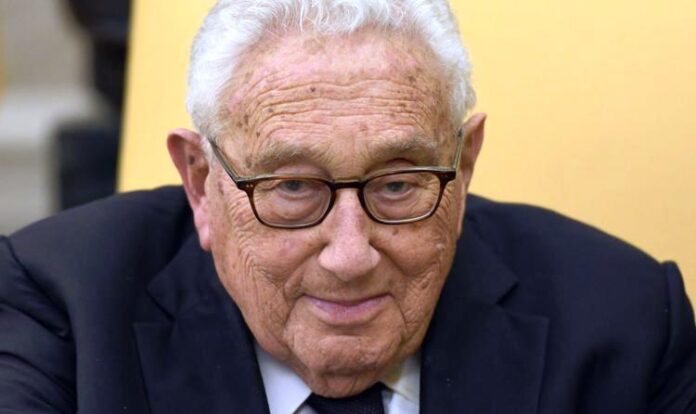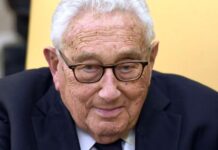EDITORIAL
Henry Kissinger, one of the most influential figures in global diplomacy, will celebrate his 100th birthday tomorrow. Throughout his career, Kissinger has played a major role in global events, from his involvement in the Vietnam War to the coup in Chile and the historic opening of China under Mao. Admired by some and fiercely criticized by others, his century of life has left an indelible mark on international politics. In this article, we reflect on some of the most significant moments of his long and controversial career.
The Involvement in the Vietnam War
One of the most controversial chapters of Kissinger’s career was his involvement in the Vietnam War during Richard Nixon’s presidency. Kissinger supported the intensification of large-scale bombings, a strategy that drew criticism for its brutality and humanitarian consequences.
The Coup in Chile
Another pivotal moment in Kissinger’s career was his involvement in the 1973 coup in Chile, which led to the overthrow of the democratically elected government of Salvador Allende and the establishment of a military dictatorship led by Augusto Pinochet. Kissinger’s actions in this context raised many questions about the morality and ethics of American foreign policy.
The Opening to China under Mao
Despite the controversies, Kissinger was also instrumental in the historic opening of diplomatic relations between the United States and Mao Zedong’s China. Through a series of secret negotiations, Kissinger laid the groundwork for the normalization of relations between the two countries, paving the way for a new geopolitical order and radically shifting the balance of global power.
Kissinger and Monnet: Realpolitik and European Integration in Comparison
Henry Kissinger and Jean Monnet are prominent figures in the international arena, and both sought to ensure stability in international relations.
Kissinger, as both a political scientist and politician, firmly believed in Metternich’s theory of realpolitik, based on the balance of power and international concert. He never fully embraced the idea of the European Union as a supranational entity and emphasized its limitations.
On the other hand, Monnet is considered one of the main architects of the current European Union. He promoted the idea of an “Union of equals,” where common rules and policies would ensure the benefit of all members. His vision was based on functionalism, where common policies and institutions would gradually develop.
Both had success in their respective spheres of influence. Kissinger helped the United States withdraw from the Vietnam War and established peaceful relations with the Soviet Union and China. Monnet guided European states toward greater integration, promoting economic and political cooperation among member countries. In a period marked by conflicts in Europe, the comparison between these two philosophies is of great interest. While Kissinger focused on the balance of power and traditional diplomacy, Monnet advocated for European integration as a means to ensure peace and stability.
Despite their differences, both have contributed to stabilizing international relations in different ways.
Kissinger: New Global Equilibriums and Challenges for the European Union
The Russian invasion of Ukraine has significantly shifted the global balance and highlighted challenges for the European Union. Henry Kissinger has expressed concerns about a confrontational approach with Russia, fearing a potential alliance with China. The war in Ukraine has reinforced the EU, but it has also revealed its limited military capabilities to enforce international norms. In a multipolar context, Europe must become a recognized international actor.
The Kissinger Legacy
Admired by many for his diplomatic skills and strategic vision, Kissinger has also faced numerous criticisms for policies deemed immoral and controversial. His influence on American and international foreign policy has been profound, leaving a lasting imprint on how the United States engages with the rest of the world.
A Century of Triumphs and Controversies
As Henry Kissinger reaches the milestone of 100 years, his century of triumphs and controversies, his life has been marked by moments of triumph and controversy on the international stage. As a statesman and diplomat, Kissinger has shaped global events, leaving behind a complex and debated legacy. His influence and impact on international politics will continue to be the subject of discussion and analysis for years to come.



